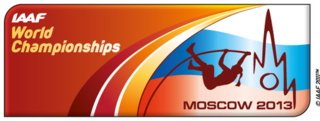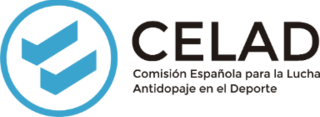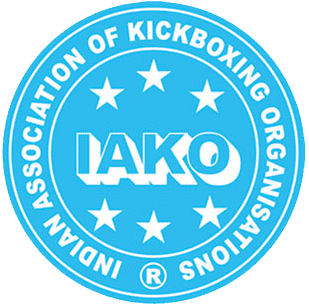Related Research Articles
World Athletics, formerly known as the International Amateur Athletic Federation and International Association of Athletics Federations, is the international governing body for the sport of athletics, covering track and field, cross country running, road running, race walking, mountain running, and ultra running. Included in its charge is the standardization of rules and regulations for the sports, certification of athletic facilities, recognition and management of world records, and the organisation and sanctioning of athletics competitions, including the World Athletics Championships. The organisation's president is Sebastian Coe of the United Kingdom, who was elected to the four-year position in 2015 and re-elected unopposed in 2019 for a second four-year term, and then again in 2023 for a third and final 4 years.

The United States Anti-Doping Agency is a non-profit, non-governmental 501(c)(3) organization and the national anti-doping organization (NADO) for the United States. To protect clean competition and the integrity of sport and prevent doping in the United States with a performance-enhancing substance, the USADA provides education, leads scientific initiatives, conducts testing, and oversees the results management process. Headquartered in Colorado Springs, Colorado, USADA is a signatory to the World Anti-Doping Code, which harmonizes anti-doping practices around the world, and is widely considered the basis for the strongest and strictest anti-doping programs to prevent doping in sport.
In competitive sports, doping is the use of banned athletic performance-enhancing drugs by athletic competitors, as a way of cheating. As stated in the World Anti-Doping Code by WADA, doping is defined as the occurrence of one or more of the anti-doping rule violations set forth in Article 2.1 through Article 2.11 of the Code. The term doping is widely used by organizations that regulate sporting competitions. The use of drugs to enhance performance is considered unethical, and is prohibited by most international sports organizations, including the International Olympic Committee. Furthermore, athletes taking explicit measures to evade detection exacerbate the ethical violation with overt deception and cheating.
The World Anti-Doping Agency is a foundation initiated by the International Olympic Committee based in Canada to promote, coordinate, and monitor the fight against drugs in sports. The agency's key activities include scientific research, education, development of anti-doping capacities, and monitoring of the World Anti-Doping Code, whose provisions are enforced by the UNESCO International Convention Against Doping in Sport. The aims of the Council of Europe Anti-Doping Convention and the United States Anti-Doping Agency are also closely aligned with those of WADA.

The 14th IAAF World Championships in Athletics was an international athletics competition held in Moscow, Russia, from 10 to 18 August 2013. Initially, Russia won the most gold medals to top the table for the first time since 2001. It was also the first time ever the host nation took the top of the medal table. However, following the disqualification of Russian sprinter Antonina Krivoshapka for doping and after the redistribution of medals in the Women's 4 × 400 metres relay, the United States moved to the top of the medal table with eight golds. In the overall medal count, the United States won 26 medals in total, followed by Kenya with 12. With 1,784 athletes from 203 countries it was the biggest single sports event of the year. The number of spectators for the evening sessions was 268,548 surpassing Daegu 2011.

The International Life Saving Federation (ILS) is an organisation for drowning prevention, water safety, lifesaving and lifesaving sports.
The Australian Sports Anti-Doping Authority (ASADA) was a government statutory authority tasked to protect Australia's sporting integrity through the elimination of doping. The authority was part of the Department of Health's portfolio and was established on 13 March 2006 under the Australian Sports Anti‑Doping Authority Act 2006. On 1 July 2020, it became part of Sport Integrity Australia.

The Sportvereinigung Dynamo was the sport association of the security agencies of former East Germany.

The Ministry of Youth Affairs and Sports is a branch of the Government of India which administers the Department of Youth Affairs and the Department of Sports in India. Anurag Thakur is the current Minister of Youth Affairs and Sports followed by his Deputy Nisith Pramanik.

The French Anti-Doping Agency is an independent public authority formed in 2006 and charged with ensuring that participants in sports in France do not violate rules regarding doping.

UK Anti-Doping (UKAD) is the organisation responsible for protecting sport in the United Kingdom from doping. It is a non-departmental public body of the Department for Culture, Media and Sport and is structured as a company limited by guarantee.

United States Anti-Doping Agency v. Lance Armstrong, the Lance Armstrong doping case, was a major doping investigation that led to retired American road racing cyclist Lance Armstrong being stripped of his seven consecutive Tour de France titles, along with one Olympic medal, and his eventual admission to using performance-enhancing drugs. The United States Anti-Doping Agency (USADA) portrayed Armstrong as the ringleader of what it called "the most sophisticated, professionalized and successful doping program that sport has ever seen."
Australia has been at the forefront in the fight against doping in sport. It was one of the first countries to establish a sports anti-doping agency and is a member of World Anti-Doping Agency (WADA). Australia abides by World Anti-Doping Code. In 2010, Australian John Fahey was re-elected as President of WADA for a second and final three-year term which finished at the end of 2013. Australia like other major countries has been embroiled in major doping in sport controversies and issues.
Bodybuilding in Australia traces its early history to the 1940s. In 1947 the first large scale national bodybuilding contest was held, and since then bodybuilding has continued to grow within Australia. It has diversified from originally being largely male-dominated to having equal, or in some instances more, women competitors. Australia has both produced high performing bodybuilders, such as Lee Priest, and also hosted some historically significant events in the field, such as the IFBB Mr Olympia in 1980 where Arnold Schwarzenegger was the winner.
The Russian Anti-Doping Agency, established in January 2008, is the Russian National Anti-Doping Organisation (NADO), affiliated with the World Anti-Doping Agency (WADA).

The Spanish Anti-Doping Agency, officially Spanish Commission for the Fight Against Doping in Sports (CELAD), is a Spanish state agency responsible for the protection of the right to health of all athletes and the protection of the right to participate in a competition without cheats.
Systematic doping of Russian athletes has resulted in 48 Olympic medals stripped from Russia, four times the number of the next highest, and more than 30% of the global total. Russia has the most competitors who have been caught doping at the Olympic Games in the world, with more than 150.
The International Pole Sports Federation (IPSF) is a not-for-profit global organization that has been recognized as an Observer Member by the Global Association of International Sports Federations (GAISF) as the international governing body for pole sports. It is also a member of The Association for International Sport for All (TAFISA). The IPSF is the umbrella organization for national pole federations and hosts the annual World Pole Championships.

Indian Association of Kickboxing Organisations (IAKO) is the national federation of kickboxing in India. IAKO was formed in 1993 to control and promote kickboxing activities throughout the country. IAKO promotes amateur kickboxing and professional kickboxing in all the states, union territories and special armed forces across the country.

The International Testing Agency, often referred to by the acronym ITA, is an independent organisation constituted as a non-profit foundation which implements anti-doping programs for international sports federations, major event organizers or any other anti-doping organisation requiring support. The organisation was created in 2018 under the supervision of the World Anti-Doping Agency (WADA) and the International Olympic Committee (IOC) to promote independence, expertise and transparency in the global fight against doping. Its headquarters are located in the city of Lausanne in Switzerland.
References
- ↑ "About NADA". National Information Commission. Archived from the original on 12 May 2013. Retrieved 3 April 2013.
- ↑ "National Anti Doping Agency formed". The Hindu. 31 March 2006. ISSN 0971-751X . Retrieved 11 December 2017.